- Home
- Hilary Mantel
The Giant, O'Brien: A Novel Page 6
The Giant, O'Brien: A Novel Read online
Page 6
Fresh from the farm. John Hunter looks about him, at their blackguards’ faces. It is night, and the room is chilly, so they sit muffled in the clothes they will wear when out and about. He has shown them his stock, and watched their faces for signs of levity and mirth on the one hand, or sickening on the other. Neither will do for him. Getting corpses is not for the queasy. It is not a sport either and yet …
“Those years are behind him, you’ll say. He is grizzled now and bowed, not fleet as formerly, his hearing not so sharp; fitter for the laboratory, you’ll say, and the lecture room. And yet there are nights … there are some black nights when I find myself restless, and I would wish to be out again with a swift and sober crew, with our dark lantern and our wooden shovels, our cords and sacks and crowbars.”
Select your tools carefully …
Wooden shovels make no sound. (Grunts of effort, even, must be suppressed.) A stout canvas is needed to receive the earth. The hole is made at the head’s end. The hooks, the crowbars, are to insert under the coffin lid. The earth at the foot acts as a counterweight, so—breath indrawn, and held—the lid snaps across. With experience, it is possible to predict—with a thrill that runs from the palms to the elbows—the very second when the wood will crack.
The corpse then is roped beneath the arms, and hauled out, head first, like a difficult birth. Flapped onto dry land, it is straightened and stripped. The grave clothes are thrown back. The gaping sacks are drawn over the flesh, the knees pulled up, the head forced down, the whole returned—as if after birth comes conception—to that economical package in which we spend our nine months in the womb. And lashed with cords. A compact bundle: looking no bigger than a dog, or a few pounds of jostling turnips.
“You will need ladders, of course, to scale the cemetery walls. May I advise you that a rope ladder is more discreet? Yet even then, if stopped in the street with it, you will find questions are asked, and so I advise you that a sexton with a well-oiled palm is more discreet still. Cultivate such men. Drink with them. Get to know their habits and their cant. Sympathise with them in the trials of their trade. Ask after their wife and babies. But when I say drink with them, I mean in your own time. Never take strong drink on a night when you mean to exercise your profession. You will do very well in this trade if you keep sober. The chief reason of bungling is strong drink.
“You will need a table showing the phases of the moon. This I will provide.
“Listen out for passing bells. Frequent ale-houses and listen for gossip of the lately dead. Make fast friends with the women who lay out corpses. A half-penny or a little love-talk may procure you access, and a chance to inspect. What are you looking for? I will come to that.
“If any stranger is weeping in the street, it is worth a moment of your time to approach him and tenderly ask why. If bereavement is the cause, then softly enquire, ‘And where is your loved one laid out? And died of what cause? Just yesterday, you say? My, how I pity you, sir.’
“In grief, even strong men blurt, and this blurting may produce much valuable information.
“Have any of you a large number of lady friends?” He casts his eyes around the band. They manifest—could it be shock? Indignation? But he has given this talk before. He knows all the reactions to it, and how long he must pause to let those reactions play themselves out. “My dear sirs”—it pleases him to flatter the scum—“I suggest nothing criminal. Nothing violent, God help us all. Even the nastiest doxy may be missed—by her pimp, perhaps. No, what I suggest … it may be that you have a reliable paramour who would like to enact the role of Weeping Woman?
“A Weeping Woman is a very good way of procuring a cheap corpse. Suppose I am desirous of an infant, or a strong youth in his prime. Your Weeping Woman will beat on the workhouse door, crying, ‘I am looking for my sister’s babby, he but nine months old, left with a neighbour and now she says he is dead.’ Or, ‘James, James, my brother James, he was impressed for a sailor and now some say he is dead, these seven years I have not seen him’ … so, you know, if the overseer suspects in the least and presses her for a description, she can say, ‘But a shrimp-like lad of thirteen when he went to sea, how shall I know him now he is a man grown?’ And as you will understand, it is not in the interests of workhouse officers to ask too many questions, because if she claims him for burial, the parish is spared the expense. I would recommend this to you as an excellent way, moreover, to obtain the corpse of a woman who is with child—an object of great interest to me. Only rehearse them in this way: ‘My sister, my dear sister Kate, if I had known her shame I would have taken her in, why should she drown herself so?’ It is advisable to practice with your Weeping Woman beforehand, taking the part of the overseer, so as to prepare her for any unexpected turn that the interview may take. But as you will understand, the life of a Weeping Woman is limited.” He pauses. “Because she gets known, you see. Because she gets known.
“You may say, it is an easy matter to discover when the rich have expired, you may find it in the gazettes. But ask yourself, am I man enough for a mausoleum? Can I rip marble apart? The corpses of the rich are often guarded, and their coffins of lead; even if wooden, they bury deep, and their coffins are of such sturdiness that sometimes the lid may need to be sawn across, which is not the quickest business; and you must beware spring traps and trip wires. Reflect then, that the corpse of the plutocrat, his wife, or daughter has no inherent superiority to that of the beggar and his moll. All corpses are welcome to me, unless putrid or poxy.
“A paupers’ grave, as you know, may contain several corpses within one deep pit, and is therefore likely to yield well per hour of effort—but do not be tempted to descend into pits, however well-charged, for I have known men to collapse, overcome with poisonous emanations. What you cannot do with hooks and ropes, do not do at all. Keep your feet on level ground. Do not jump on coffins, for rotten coffins will not take your weight.
“Keep a keen watch on the hospitals, so that you know what paupers are to be admitted in the next day or so, for what operations. Those of you who are porters in the hospitals have the advantage—look out for those persons dying with deformities and distortions, such as vastly swollen heads—those are of great interest to me also. Avoid those with noxious, offensive tumours, as they sting the students’ fingers. Remember that Jews bury early; where a corpse is wanted that must be very fresh, their cemeteries are very likely, very likely indeed.
“Be advised that for the corpses of young children I pay by the inch. For the first foot, one shilling. Thereafter, ninepence per inch.
“Do not delay on account of clawing out the corpse’s teeth. I am aware that persons will offer you a price for them, but I will give you the teeth, if I don’t want them myself, and you are much better to extract them in the safety and good light of my own rooms than you are to salvage them by lantern’s gleam in the clammy dark, with the dogs howling about you and the watch on its way.
“Certain artists will come to you, asking you to bring them material. Bear in mind that the character of artists is bad in general, and their pockets are not deep. You may find yourself turned away with any number of excuses: ‘Ah, I had in mind a larger man, I had in mind a younger woman’—and there is the corpse on your hands, rotting, and all your labour lost. Do not trust artists. As for me, you will find me a ready purchaser. Hard but fair.
“Remember, speed is of the essence. I will say to you what I say to my students. Do not trifle with corpses, or perform indignities on them, such as flipping the male’s penis, or introducing instruments into the orifices of young women. Be sure, be rapid, take a pride in your work. Do nothing to increase the disgust in which you are already held.
“Do not steal the grave clothes. Do not be greedy. The theft of the body is in itself no crime, for whereas an animal’s carcase is property the carcase of a man is not. But if you take away the shroud or the winding sheet, you commit a theft. In any case, the value of such articles, at second-hand, is not great. Throw them bac
k, on what remains of the coffin. Then fill in, leave no loose soil, smooth all.
“Leave the grave as you found it. No slovenly workmanship—for that conduces to suspicion, and suspicion conduces to lying in wait, and lying in wait conduces to apprehension, and apprehension conduces to a mob, and a mob conduces to a smashed pate and a broken leg, and a noose if you are unlucky. Therefore, should you find any little object laid on a grave—such as a flower, a shell, or an arrangement of stones—study how it is placed, carefully pluck it off, save it, and then replace it once your work is done.
“You will want a table with the phases of the moon. This I will provide.”
“You said that before, sir,” a man ventures.
“Aye.” He takes out his handkerchief and wipes his sweating face. “I said it before.”
six
Alone in his work room, John Hunter broods. Around him are the tools of his trade, his blades and saws, and his hand steals towards them, as if he cannot help himself. Why think? Why not experiment? And see where experiment leads? Don’t conjecture. Don’t waste time on it. Observe.
Swiss peasants told Mr. Linnaeus that the worm Gordius, if it be cut into a number of pieces, each piece can yet twitch; and if the pieces be put into water, each will grow the head and tail it lacks. Men of learning had scoffed at this as superstition, when they could have found it to be true, if only they had experimented and spent a little of their time cutting up worms. In our day, it is not the Oxford man, or the scientific dandy, who is the hero of observation, it is the peasant, the Hunter, the man with his snout in the soil—he who does not say, “This is contrary to nature,” because he allows himself to be endlessly astonished by nature’s variety and perversity. He has no prejudices, no expectations. He bears no ill-will to any life-form. He has often cut up worms, for when you live in a place like Long Calderwood you learn to make your own entertainment.
Besides these habits of mind, what skill does an experimenter need? He needs patience, deftness, and the ability to think of doing what other people would deem completely pointless.
Take M. Trembley. He was admittedly a gentleman, or at least tutor to a gentleman; but he had a humble cast of mind. M. Trembley crept about in ditches, dredging up vegetation and thick brown slime. With delight, and through his magnifying glass, he observed the hydra, a freshwater polyp with arms shaped like horns.
M. Trembley kept his retrieved polyps in glass jars. He cut them up with a small pair of scissors, lengthways, crossways, every-which-ways. There was no killing them. He minced them and he grafted them, he made three of one. He watched them regenerate. Some grew eight heads. One day he sneaked up on a polyp with a hog’s bristle and turned it inside out, forcing its posterior through its mouth. M. Trembley was awarded a medal. For a while, polyps were the top fashion. Even great ladies were seen pursuing them, draggling in ditches. Then the fashion changed, and the virtuosi moved on to electrical experiments.
What lessons do we pluck from M. Trembley’s work—a model of its type? Disbelieve everybody, even Aristotle. Write down your methods. Experiment. Do it over and over. Cut finer. Distrust general rules. Cut finer still.
They’d been thinking about a triumphal procession, but the trouble is, Joe Vance said, you can’t have a triumph without horses, and your ordinary horse set beside your giant looks like a low dog, a spaniel. So you’ve got to hire Percherons, and they don’t come cheap.
“They have to be caparisoned with cloth of gold,” the Giant said.
“Yes, the caparisons, that’s another expense,” Joe said. “What do you say we just walk around? It’s only a short step.”
So they set out on foot along Piccadilly. Crowds in the street gaped and jostled and craned their necks. Joe shouted satirically, “Look your fill, cheapskates, pop your eyes,” and produced a box, which he rattled in front of them.
They came to Spring Gardens. “Nice high ceilings, I thought,” Joe said. “Claffey, don’t spit on the floor, if you want to spit go out in the street.”
“Out in the street, is it?” Claffey glared.
“Now, now,” Joe said. “No cross words on our first day in our new house.”
Their exhibition room, above the cane shop, was airy and lofty. Their own quarters, at the back, were meaner, and yet ostentatious. “Bedding is ordered up from the landlord,” Vance said. “He has a woman sees to it, but we must provide our own linen. I know a supplier, as it happens …”
“Fine linen,” the Giant stipulated.
“Fine, to be sure.”
“A pair of sheets you can draw—swish—through a woman’s bangle.”
“If you will,” said Vance.
Jankin said, “Have we to sleep up in the air on platforms?”
“They are called beds, Jankin,” said the Giant. “You have come across them in stories.”
“Will I not roll off, when I am dreaming, and injure myself?”
“Very likely,” said the Giant.
Jankin pulled at his sleeve. “Mester, have you ever, you know, slept in a bed?”
“No,” the Giant said. “I never have, Jankin. There’s no point, really, when your legs from the knees have to dangle elsewhere, and if you turn in the night you crack your knuckles on the floor. Better stay level, ground level.”
“Still,” Jankin said, “it’s a great thing to be a giant. I wish I were one.”
“But as you’re not, you can relish the thought of an easy night.”
They heard a door bang, and a female step, and an exclamation. “Gentlemen all!”
“But we know you, Miss,” Pybus said.
It was the girl from the cellar, with the shining face and the silver hair. “I am employed here by your landlord, since he has forgotten how to speak our language, just to see that the night-soil man hauls your shit away, and that you are not setting fire to his premises, or painting on the walls. I hope you will not do that.”
Joe Vance grinned. “You’ll take a drink?”
“I will not. I work for the landlord, he gives me a meal a day and a penny for straw.”
“Straw? Straw be damned. You can share with us,” Joe offered.
“Or I can cut my throat,” the girl said calmly. “Either will do, I suppose?”
Joe scowled. “That red-head, the one with the kerchief. From the cellar. What’s her name?”
“Bitch.”
“What?”
“That is what we are all named, here in England. Shift my shit, bitch. Scrub my floor, bitch. Lift your skirt, bitch, shut your eyes, soon you’ll come by a nasty surprise.”
“This isn’t right,” the Giant said.
“Not pleasant, but highly reasonable,” the girl said. “Suppose one of ours is taken up and questioned: What is the name of the woman who cut that man, what is the name of the woman who took his purse? Bitch, he says. Yes, I know, says the magistrate, but what is her name? Then our boy rolls his eyes and says, Bitch: or at least she has no other name I ever heard.”
“I see it,” Claffey said. “I understand. It’s a grand scheme. But from day to day can we not …?”
“You can call me Mary,” the girl said.
The Giant said, “That’s all-purpose, too.”
That was a happy week. They had a sea-coal fire, and a handy pump nearby. Bitch Mary found them a hedgehog, to keep down beetles. She also showed them what they could eat: oysters and Yarmouth herring, and hot gingerbread from a stall, fat pork and dumplings from the cookshop, bread and cheese. The vegetables tasted of smoke and the milk tasted of water, but they never minded. Joe Vance was in high spirits. He bought Bitch Mary a blue ribbon, which she put away for Sunday. To drink, they had gin and beer.
I have ordered a white bear from Greenland.
Opportunities for the dissection of whales too seldom occur; I wish I could get a whale. I wish I could get a tame lion, not very old, or the foal of a camel sent to me in a tub of spirits.
Jankin came in, wailing from the street. What’s the matter? they aske
d him.
“A woman asked me if I wanted to buy a song. I said yes, and she took my penny and she gave me this.” Jankin held out a piece of paper, which he had screwed up in his fist. “I said, ‘That’s not a song, miss,’ and she got in a lather, and she said, ‘Bog off, bog-head,’ and everybody laughed.”
“He ought not be let out alone,” Bitch Mary said.
Joe Vance took the sheet and straightened it out. “‘The Debtor’s Lament,’” he said in disgust. “’Tis forty years old to my knowledge. You’ve been had, piss-wit. Next time you want a song, sing it yourself.”
“What age are you, Charlie?” Joe Vance said.
The Giant stared. “What age? I’d never considered.”
“I need it for the press. We are going to have an insertion in the newspaper. To draw the notice of the best class of person to the fine spectacle you present.”
“Let’s say one-and-twenty. It’s nobody’s business, is it?”
“One-and-twenty it is. The Tallest Man in the World, at home at Spring Gardens for a limited period only, having recently returned from continental triumphs, exhibiting in Cologne, Paris, Strasbourg, and Amsterdam, where Mr. Byrne has been received by the finest and most genteel society and made a conquest of the ladies’ hearts.”
“But that’s a lie!” Claffey said.
“It is usual to lie in advertisements, Claffey. Allow me to know my trade.”
I would like to get a nest, an old cuckoo, and a young cuckoo.
“And then you’ll be meeting the press,” Joe Vance said. He looked around, at their quarters. “It’s a bit bare, do y’know? We could do with fancifying it a bit.”
“All costs money,” Claffey said.
Said Joe, “I’ll lash out a bit. In anticipation of large returns.”

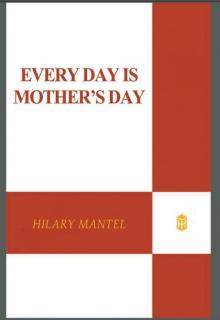 Every Day Is Mother's Day
Every Day Is Mother's Day An Experiment in Love
An Experiment in Love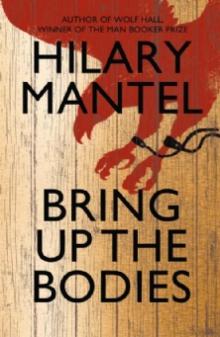 Wolf Hall
Wolf Hall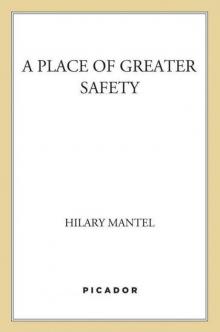 A Place of Greater Safety
A Place of Greater Safety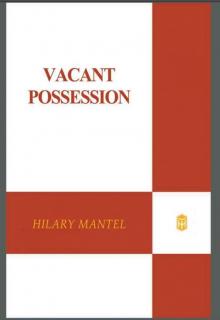 Vacant Possession
Vacant Possession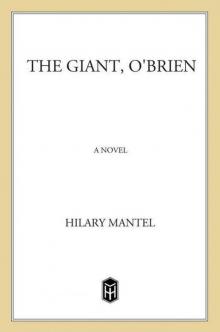 The Giant, O'Brien
The Giant, O'Brien Beyond Black
Beyond Black Ink in the Blood: A Hospital Diary
Ink in the Blood: A Hospital Diary The School of English
The School of English Giving Up the Ghost
Giving Up the Ghost The Mirror and the Light: 2020’s highly anticipated conclusion to the best selling, award winning Wolf Hall series (The Wolf Hall Trilogy, Book 3)
The Mirror and the Light: 2020’s highly anticipated conclusion to the best selling, award winning Wolf Hall series (The Wolf Hall Trilogy, Book 3)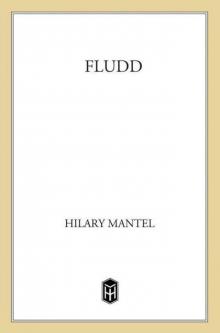 Fludd
Fludd Eight Months on Ghazzah Street
Eight Months on Ghazzah Street Learning to Talk
Learning to Talk How Shall I Know You?: A Short Story
How Shall I Know You?: A Short Story A Change of Climate
A Change of Climate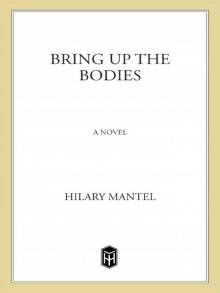 Bring Up the Bodies
Bring Up the Bodies The Assassination of Margaret Thatcher: Stories
The Assassination of Margaret Thatcher: Stories Beyond Black: A Novel
Beyond Black: A Novel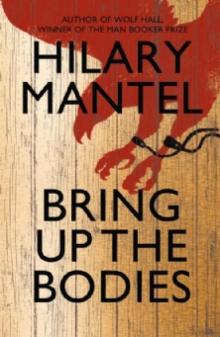 Wolf Hall: Bring Up the Bodies
Wolf Hall: Bring Up the Bodies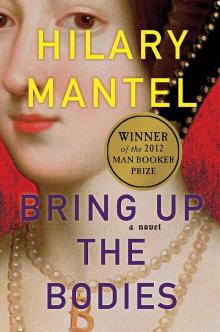 Bring Up the Bodies tct-2
Bring Up the Bodies tct-2 Ink in the Blood
Ink in the Blood The Assassination of Margaret Thatcher
The Assassination of Margaret Thatcher Eight Months on Ghazzah Street: A Novel
Eight Months on Ghazzah Street: A Novel How Shall I Know You?
How Shall I Know You? A Change of Climate: A Novel
A Change of Climate: A Novel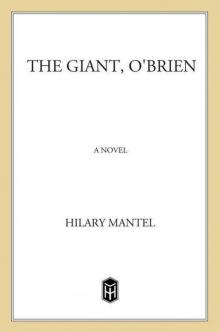 The Giant, O'Brien: A Novel
The Giant, O'Brien: A Novel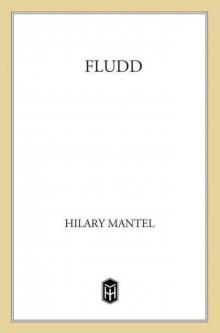 Fludd: A Novel
Fludd: A Novel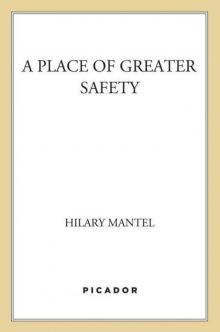 A Place of Greater Safety: A Novel
A Place of Greater Safety: A Novel An Experiment in Love: A Novel
An Experiment in Love: A Novel